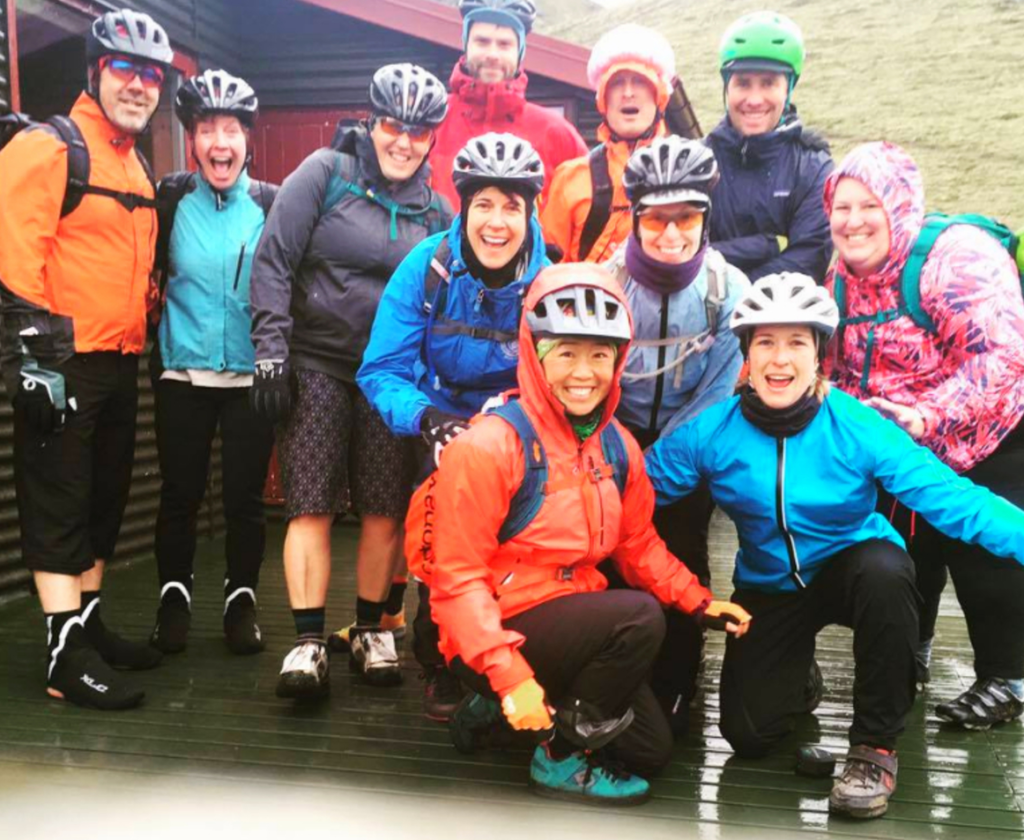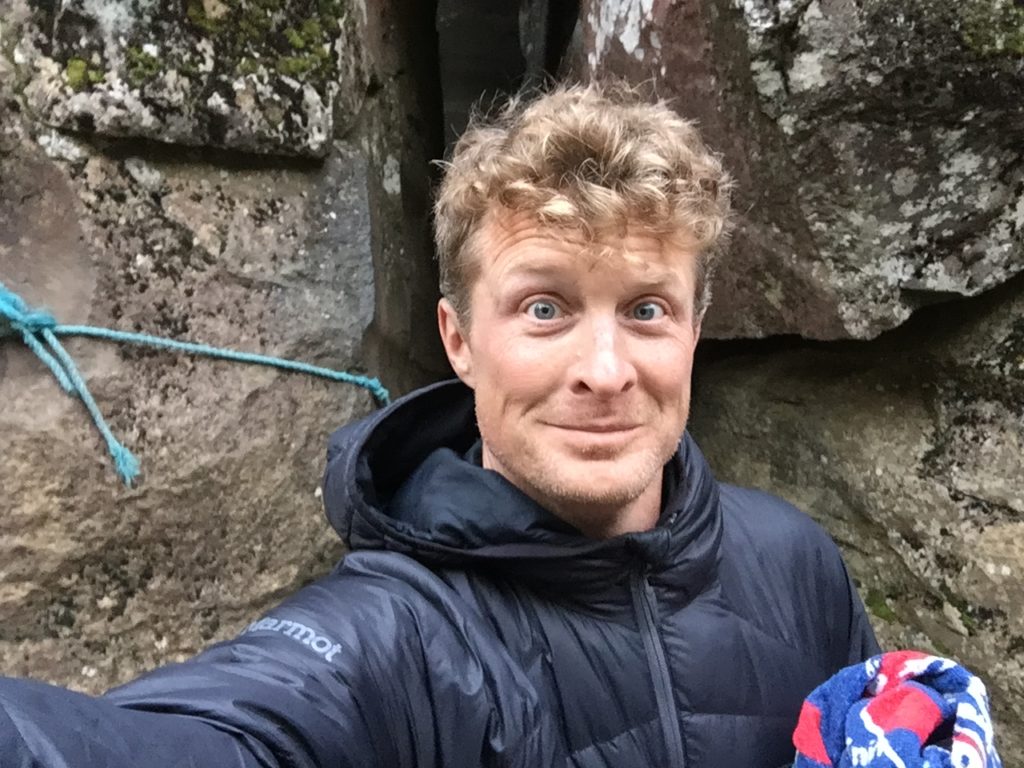 We caught up with Quintin Mecke, who is embarking on his second Climate Ride mountain biking tour this year!
Hey Q, why did you sign up?
“How could I not participate? 🙂 I love cycling, I love people, I love the planet and I am a firm believer that actions (especially when on two wheels!) speak louder than words. For all of us, the time is now for action.”
What’s motivating you?
We caught up with Quintin Mecke, who is embarking on his second Climate Ride mountain biking tour this year!
Hey Q, why did you sign up?
“How could I not participate? 🙂 I love cycling, I love people, I love the planet and I am a firm believer that actions (especially when on two wheels!) speak louder than words. For all of us, the time is now for action.”
What’s motivating you?
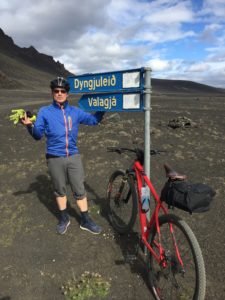 “Watching our collective inaction on climate is motivation enough but more importantly, Bears Ears National Monument has deep cultural and religious significance for Native American groups and I believe we need to respect that. In addition, Bears Ears National Monument is a uniquely beautiful place and it was one of the first national monuments that Trump and then Secretary Zinke targeted for reduction. We need to take these monuments back from the oil and mining industries.”
How has climate change impacted you and/or the area you live in?
“Climate change has changed every aspect of weather in California. We’ve experienced severe droughts, torrential flooding and now insane wildfires in recent years. It’s not rocket science, normal weather no longer exists anywhere, the planet is changing based on what we’re doing to it.”
What field do you work in?
“I work as the National Organizing Director for the Center for Biological Diversity. We are an environmental advocacy organization that believes protecting the planet’s full biodiversity is a key to saving life on Earth.”
Can you tell us more about your organizing work?
“Watching our collective inaction on climate is motivation enough but more importantly, Bears Ears National Monument has deep cultural and religious significance for Native American groups and I believe we need to respect that. In addition, Bears Ears National Monument is a uniquely beautiful place and it was one of the first national monuments that Trump and then Secretary Zinke targeted for reduction. We need to take these monuments back from the oil and mining industries.”
How has climate change impacted you and/or the area you live in?
“Climate change has changed every aspect of weather in California. We’ve experienced severe droughts, torrential flooding and now insane wildfires in recent years. It’s not rocket science, normal weather no longer exists anywhere, the planet is changing based on what we’re doing to it.”
What field do you work in?
“I work as the National Organizing Director for the Center for Biological Diversity. We are an environmental advocacy organization that believes protecting the planet’s full biodiversity is a key to saving life on Earth.”
Can you tell us more about your organizing work?
“Sure. We have staff all over the country and our job is to motivate, inspire and organize people across the country to take action to save the planet. We need all hands on deck if we’re going to solve the climate crisis and we help develop people power by moving + training people from being online clicktivisits (online petitions, social shares, etc.) to taking real-life action.
These actions could be protesting at Congress or at their state legislature, organizing local meetups to connect with other activists, or any action that builds their capacity to do more, and most importantly their skills to get other people to do more. That’s when the magic of organizing takes place, when people start organizing other people and taking action becomes contagious. People demanding change is the only way we will win and it starts with each of us.”
Which beneficiaries are you supporting through the Climate Ride grants program, and why?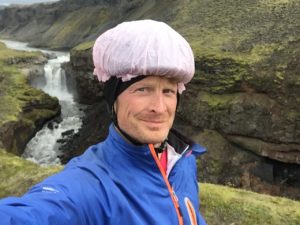 “The beneficiary for my Climate Ride is the Center for Biological Diversity. We are part of active legal and political campaigns in Utah to save Bears Ears (and Grand Staircase Escalante) national monuments from Trump’s reduction and I’m super excited to be able to ride to support these efforts.”
Are there any personal challenges you’ve confronted or foresee in preparing for the ride? How did/will you overcome them?
“I am a full-time road/mountain/commuter cyclist (I also did Climate Ride Iceland in 2018 🙂 so I feel ready for the actual ride. My only logistical challenge was deciding very late to do the ride but I like the challenge so bring it on!”
Has preparing for and participating in this event spurred you to take any action on climate (personal, locally or nationally)? Action examples include joining marches, signing petitions, getting press, meeting with representatives, joining groups, changing habits/household purchases, installing solar/energy efficiency, and more.
“Personal environmental actions and individual behavior changes are fine BUT we shouldn’t kid ourselves, we need to do more. We need to think bigger about transforming the systems, namely capitalism, that are fundamentally incompatible with solving the planet’s climate/environmental problems. Until we can move beyond corporate consumer capitalism then the individual actions we take will simply be window dressing.”
“The beneficiary for my Climate Ride is the Center for Biological Diversity. We are part of active legal and political campaigns in Utah to save Bears Ears (and Grand Staircase Escalante) national monuments from Trump’s reduction and I’m super excited to be able to ride to support these efforts.”
Are there any personal challenges you’ve confronted or foresee in preparing for the ride? How did/will you overcome them?
“I am a full-time road/mountain/commuter cyclist (I also did Climate Ride Iceland in 2018 🙂 so I feel ready for the actual ride. My only logistical challenge was deciding very late to do the ride but I like the challenge so bring it on!”
Has preparing for and participating in this event spurred you to take any action on climate (personal, locally or nationally)? Action examples include joining marches, signing petitions, getting press, meeting with representatives, joining groups, changing habits/household purchases, installing solar/energy efficiency, and more.
“Personal environmental actions and individual behavior changes are fine BUT we shouldn’t kid ourselves, we need to do more. We need to think bigger about transforming the systems, namely capitalism, that are fundamentally incompatible with solving the planet’s climate/environmental problems. Until we can move beyond corporate consumer capitalism then the individual actions we take will simply be window dressing.”
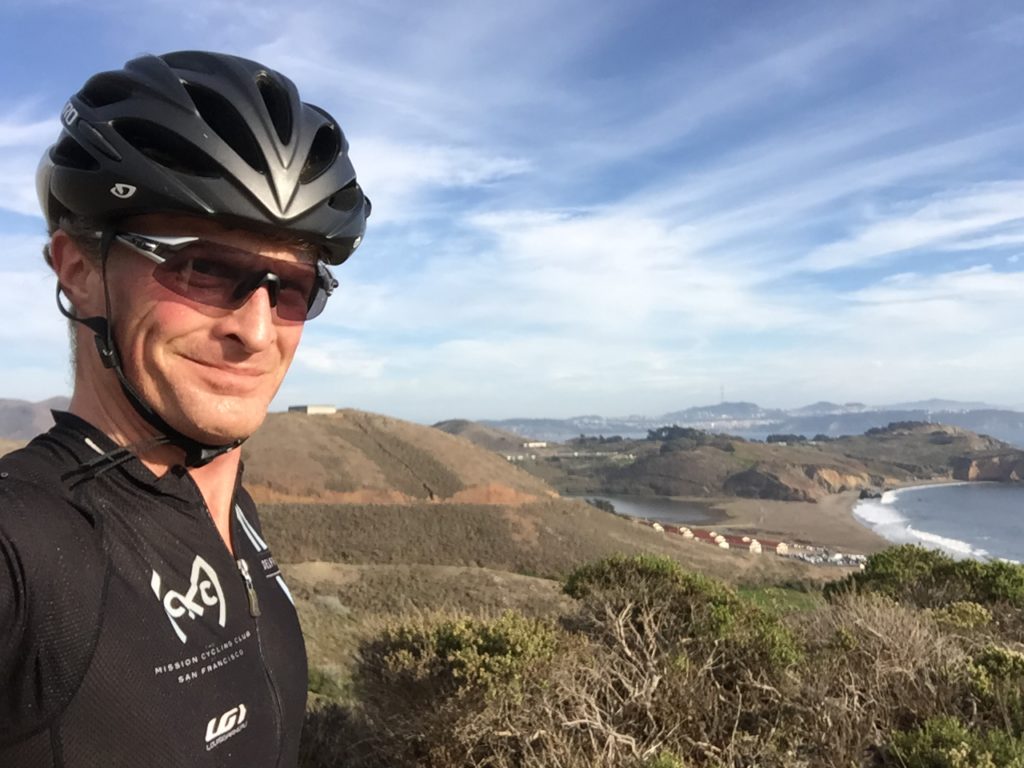 “Si se puede. Yes we can. I am not optimistic about our ability to change but I have hope. I’ll leave you with this quote from Cornel West which sums up my feelings.”
“Si se puede. Yes we can. I am not optimistic about our ability to change but I have hope. I’ll leave you with this quote from Cornel West which sums up my feelings.”
“Hope and optimism are different. Optimism tends to be based on the notion that there’s enough evidence out there to believe things are gonna be better, much more rational, deeply secular, whereas hope looks at the evidence and says, “It doesn’t look good at all. Doesn’t look good at all. Gonna go beyond the evidence to create new possibilities based on visions that become contagious to allow people to engage in heroic actions always against the odds, no guarantee whatsoever.” That’s hope. I’m a prisoner of hope, though. Gonna die a prisoner of hope.”
